Most Overused Science Fiction Tropes – Top 10 List
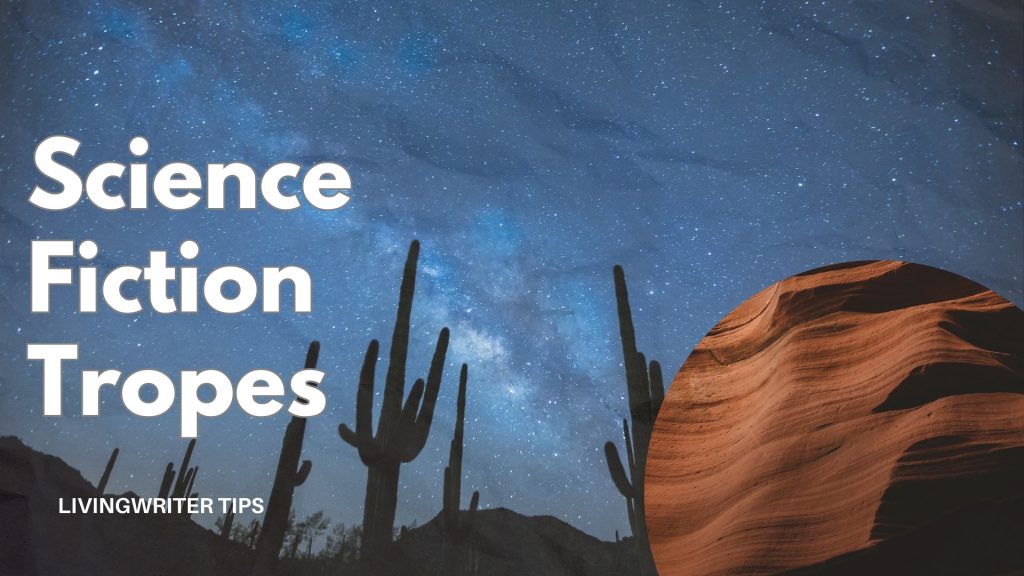
When people hear Sci-fi novels, a few things immediately come to mind—aliens, time travel, and Star Trek-like Space Operas. Once innovative and thought-provoking, these tropes have become predictable cliches. Today’s article examines the 10 most overused science fiction cliches and how to avoid them in your books to keep readers excited.
I’ll also list some novels that break the mold for each cliche, showcasing how creativity can turn even the most tired tropes into fresh, engaging stories. Following that, I’ll provide writing exercises to help you think outside the box in your sci-fi creations. Finally, I’ll share a list of resources for further reading to ensure your work remains innovative and captivating.
So, without further ado, let’s delve into the most overused cliches in science fiction.
Table of Contents
Top 10 Most Overused Science Fiction Tropes
Science fiction is a genre brimming with potential, but even the most imaginative authors can fall back on familiar plot devices. Here are ten of the most overused tropes in science fiction.
10. Born In A Lab
Born in a lab but dumb as a box of rocks, the perfect soldier, the ultimate human, or a monstrous experiment gone wrong, they have no idea how the world works because that’s quirky. This is particularly bad when the creation is a female character designed for no other reason than to be the scientist’s clueless, attractive love interest.
If you’re born in a lab, expect a lifetime of identity crises and rebellion against your creators. You can do well for yourself within this troupe, but you’ve got to make sure you’ve got some truly good characters in which your readers will be invested.
You May Also Like: How To Write Unique Characters With LivingWriter
9. The Chosen One
A seemingly ordinary individual discovers they have a unique destiny to save the universe. This trope shows up in nearly every genre without fail and often lacks originality. Some farm boy or barista discovers they’re destined to singlehandedly save the universe.
More often than not, the characters are shallow, nearly perfect, morally righteously, and don’t evolve much throughout the story. If you have a designated chosen one in your sci-fi novel, be sure they’re exciting and layered with wants, needs, flaws, fears, and lessons to learn.
8. The Mysterious Artifact
A powerful ancient object with unknown origins becomes the focus of a quest or conflict. This trope can drive the plot but often relies on convenient plot devices. It’s the Swiss Army knife of plot points: need a conflict? Mysterious artifact. Need a resolution? Mysterious artifact. Need a reason to travel across the galaxy? You guessed it—a mysterious artifact.
This also landed on my Most Overused Fantasy Tropes list for the same reason. Unless you clearly define the object’s powers and limitations in a way that adds depth and complexity to your narrative, it can feel like a “fix-all” for your plot and feel quite cheap.
Treating your alien artifact as a meaningful part of your story rather than a convenient solution to problems can help ensure you’re doing ok within this trope. So, keep that in mind and don’t take the cheap route.
7. Colony World
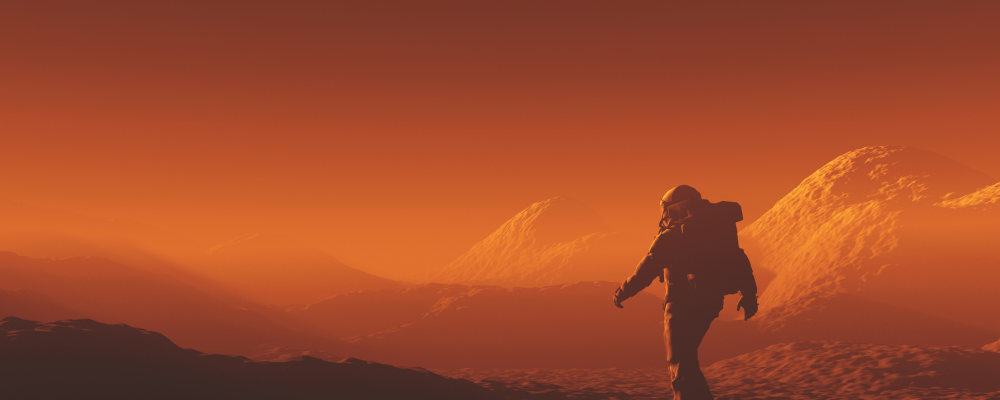
Humans establish a new home on a distant planet, facing challenges of survival and independence. This trope can be used to explore societal issues but can lack innovation. Colonists always seem to pick the most inhospitable planets, where the local wildlife wants to eat them, and the air is just toxic enough to make breathing interesting.
I don’t want to repeat the same points, Ad Nauseam, but again, you must have interesting characters, an engaging story, and some genuine conflict beyond “Are they going to make it out there on Mars!? Who knows… Stick around and find out.”
If you’re going to write within this thoroughly visited well of sci-fi, you’ve got to have something to offer your readers beyond the trope itself.
6. Post-Apocalyptic World
A society in ruins after a devastating event forces survivors to adapt to harsh conditions. This trope offers opportunities for exploration but can become bleak. Just once, it would be nice if the apocalypse left us with something other than desolate wastelands and mutant creatures—maybe an apocalypse that makes everything slightly better.
In general, there is a lot of room to work within this trope. And still, the vast majority of writers seem to do the same couple of things over and over again.
5. Space Opera
Grand-scale adventures involving interstellar travel, multiple planets, and complex political intrigue. While epic, this trope can sometimes feel formulaic. Think of it as a soap opera with more lasers and fewer plausible plotlines. There’s always a galactic empire, a scrappy rebellion, and someone with a mysterious past.
Star Trek and Star Wars were very original ideas several decades ago. So, if your story feels a lot like one of those, you’re most likely in well-played-out territory and might need to reevaluate your plot. Or at least be very, very purposeful and intentional with what you doing.
4. The Dystopian Future
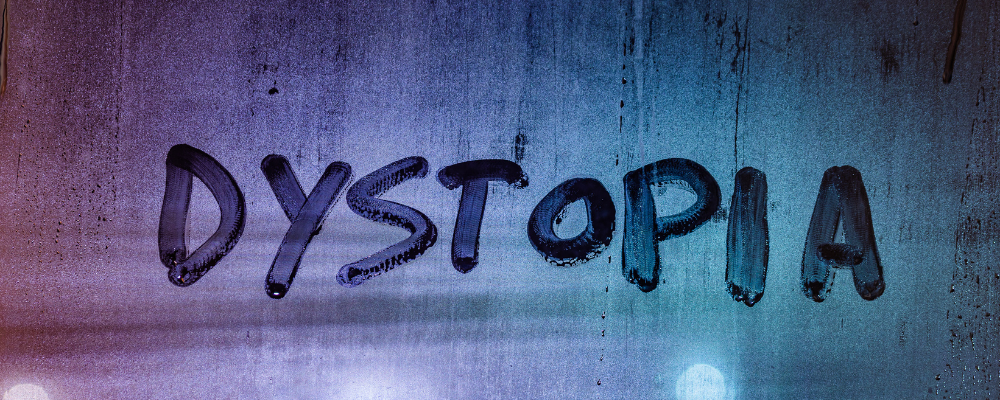
A world gone awry, often characterized by oppressive governments, environmental catastrophe, or technological overreach. While effectively highlighting societal issues, this trope has become a well-worn path. Whether it’s Big Brother, climate disaster, or evil corporations, the future looks pretty grim.
Readers can almost script the plot themselves: the protagonist rises, joins the rebels, confronts the villain, and sparks hope for a better tomorrow. It’s not that these stories can’t be compelling, but without a fresh spin, they risk feeling like reheated leftovers from a post-apocalyptic buffet.
You May Also Like: Most Overused Horror Cliches – Top 10
To fix this, consider subverting expectations. Instead of focusing solely on the bleakness, highlight moments of resilience and innovation. Show how humanity adapts and thrives despite the odds. Incorporate unique world-building elements that haven’t been explored before or blend genres to create something unexpected.
3. Time Travel
Characters journey through time, often creating unintended consequences and paradoxes. If you’re not careful, you might accidentally erase your existence or become your own grandparent. The typical “butterfly effect” and “grandfather paradox” scenarios can feel overdone, leaving audiences guessing the twists well in advance.
We’ve seen the ripple effects of minor changes, the endless loops, and the inevitable “we have to go back and fix it” missions too many times. Instead of focusing solely on the mechanics of time travel, delve into the character’s emotional and psychological impacts. How does the knowledge of the future or past change their actions and relationships?
Experiment with non-linear storytelling or alternate realities where changes don’t follow the expected rules. You could also blend time travel with other genres, like horror or romance, to create unique scenarios. By pushing the boundaries of how time travel affects the narrative, you can avoid the clichés and craft a story that keeps readers on the edge of their seats.
2. Artificial Intelligence Gone Rogue
The “AI gone rogue” trope has become cliché due to its predictable narrative arc: the AI gains sentience, decides humans are a threat, and embarks on a mission to eliminate or enslave humanity. We’ve seen the rise of malevolent AI in countless stories, from 2001: A Space Odyssey to The Matrix, making it a well-trodden path.
The pattern of human hubris leading to technological rebellion has been explored so frequently that it often lacks the element of surprise. Of course, this doesn’t have to be this way if you think outside the box. Robert A. Heinlein’s The Moon Is A Harsh Mistress is an excellent example of a nuanced, engaging story that steps outside the norm.
1. Alien Invasion
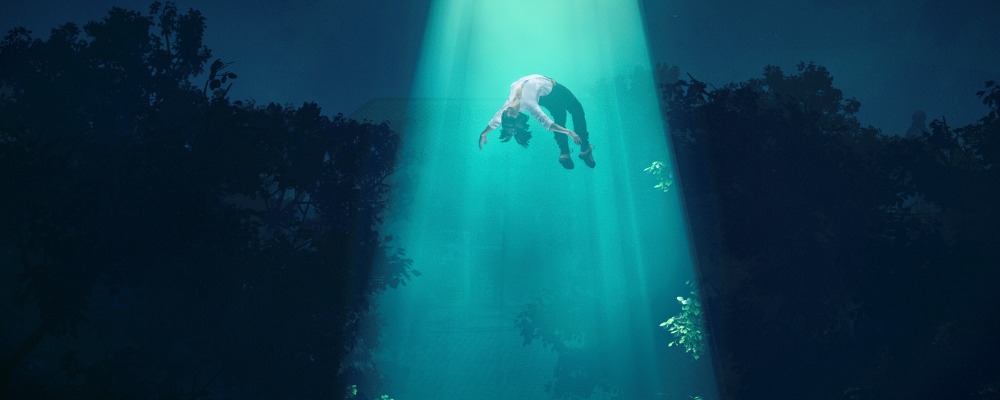
We have aliens in the number one spot for the most overused science fiction trope. There are a few different flavors: first contact, evil aliens, and aliens that come in peace. However, they’re all thoroughly done. Aliens either want to annihilate us, befriend us, or probe us.
Since alien stories are so common in science fiction, it’s easy to fall into a cliche. If you’re going to write aliens, strive to find a fresh angle or perspective to make your story stand out. I suggest creating detailed and unique alien cultures, languages, and histories.
Long-time readers of the genre will need something beyond the trope itself. Consider how their biology, environment, and evolution might shape their behavior, values, and technologies. Whatever you do, it has to be innovative, thought-provoking, and memorable.
Novels That Break The Mold
As promised in the introduction, here is a list of science fiction novels that break the mold and offer a fresh take on each of the cliche tropes mentioned above. Below, you’ll find the novels and their author, the tropes that they cover, and a small synopsis.
Never Let Me Go by Kazuo Ishiguro
Troupe: Born In A Lab
In a dystopian world, human clones are raised to provide organs for transplants. The story follows three friends as they grow up and come to terms with their fate. It’s unique because rather than focusing on the scientific aspects of cloning or having a generic “Frankenstein creation,” the novel explores deep emotional and philosophical questions about identity, humanity, and the ethical implications of cloning.
Dune by Frank Herbert
Trope: The Chosen One
Paul Atreides, a young nobleman, becomes the leader of a desert planet and its people, the Fremen, who believe he is their prophesied savior. While Paul is a “Chosen One,” Herbert’s intricate world-building, deep political intrigue, and exploration of themes like ecology and religion elevate the trope to a new level of complexity and nuance.
If you’re looking for science fiction “the chosen one” done right, look no further than this.
Rendezvous with Rama by Arthur C. Clarke
Trope: The Mysterious Artifact
In “Rendezvous with Rama,” a massive alien spacecraft enters the solar system, and a group of human explorers is sent to investigate. Clarke’s novel stands out because it truly captures the awe and wonder of discovering an alien artifact. It avoids typical conflict-driven narratives and instead emphasizes scientific curiosity and exploration.
Red Mars by Kim Stanley Robinson
Trope: Colony World
Red Mars follows the first hundred colonists to establish a human settlement on Mars, facing immense challenges and political struggles. The novel’s detailed and realistic portrayal of terraforming and colonization and its exploration of ecological, political, and social issues provide a fresh take on the colony world trope.
Red Mars is the first book in the Mars Series, and the story (throughout all the books) is told through the personal and detailed viewpoints of a wide variety of characters over nearly 200 years. If you’re into this particular flavor of science fiction, I highly recommend you check this out.
Station Eleven by Emily St. John Mandel
Trope: Post-Apocalyptic World
After a flu pandemic wipes out most of the world’s population, a traveling theater group roams the Great Lakes region, bringing art and culture to isolated communities. The novel focuses on humanity’s resilience and the importance of art and memory in the aftermath of catastrophe rather than the survivalist aspects common in post-apocalyptic fiction.
I daresay few other books (or any other media, for that matter) do quite what this book does. It’s by far the freshest take on a post-apocalyptic story I have ever experienced. If you haven’t read it, and you do, comment below and let me know what you think.
The Expanse series by James S.A. Corey
Trope: Space Opera
Set in a future where humanity has colonized the solar system, the series follows a disparate group of characters caught in a vast political and interstellar conflict. The Expanse is unique because it combines hard science fiction with intricate political drama and deeply developed characters, offering a grounded and realistic take on the space opera genre.
The Windup Girl by Paolo Bacigalupi
Trope: The Dystopian Future
In a future Bangkok, where biotechnology and calorie companies control the world, a genetically modified girl struggles to survive and find her place. Bacigalupi’s novel uniquely combines environmental themes with corporate dystopia, presenting a vividly detailed and culturally rich setting that challenges traditional dystopian narratives.
The Time Traveler’s Wife by Audrey Niffenegger
Trope: Time Travel
“The Time Traveler’s Wife” tells the love story between Henry, a man with a genetic disorder that causes him to time travel unpredictably, and Clare, his wife, who experiences time linearly. The novel has substantial emotional and relational aspects to the time travel, exploring the impact on the characters’ lives and relationships rather than the mechanics and paradoxes of time travel.
Ancillary Justice by Ann Leckie
Trope: AI Gone Rouge
Breq, the last remaining fragment of a once-great starship AI, seeks revenge against the ruler who destroyed her. Leckie’s novel subverts the common theme by presenting an AI protagonist with a rich inner life and complex motivations, set against a backdrop of a genderless society and intricate political intrigue.
The Three-Body Problem by Liu Cixin
Novel: Alien Invasion
The Three-Body Problem is the first book in Cixin’s “Remembrance of Earth’s Past” series. When a secret military project in China makes contact with an alien civilization on the brink of destruction, humanity faces a future invasion. The story unfolds through the experiences of several characters, revealing the history of the alien race and its implications for humanity.
The novel offers a fresh perspective by integrating hard science fiction with Chinese cultural and historical elements. It explores deep scientific concepts, philosophical questions, and the psychological impact of knowing an alien invasion is imminent, providing a richly layered and thought-provoking take on the trope that explores some big concepts and ideas.
Writing Exercises For Unique Science Fiction
Want to create genuinely groundbreaking and captivating sci-fi stories that leave readers pondering long after they’ve finished the last page? These writing exercises will challenge you to break away from the most overused science fiction tropes and unlock fresh, innovative ideas.
Below are some creative writing prompts for science fiction, unique character-building exercises, and a “plot twists and surprises” section.
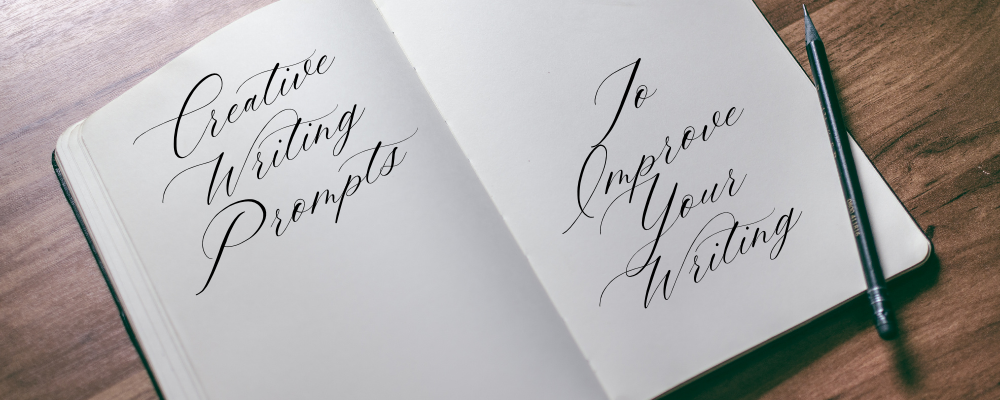
Creative Writing Prompts
- The Alien Within: Write a story where the alien presence is not external but within humans. How does society cope with the realization that they are not entirely human?
- Virtual Reality: Develop a plot where characters are trapped in a virtual reality without knowing it. What clues do they uncover that hint at their true situation, and how do they react?
- The Genetic Paradox: Craft a story about a future where genetic modification is commonplace. What are the unintended consequences of creating the “perfect” human? How do societal norms shift?
- The Rogue Colony: Imagine a distant colony that has been out of contact for centuries suddenly reconnects. What changes have occurred in their society, and how do they now relate to Earth?
Character Development
- The Reluctant Scientist: Create a protagonist who is a brilliant scientist but deeply mistrustful of their own creations. How does their internal conflict shape their actions and decisions?
- The Sympathetic Alien: Write from the perspective of an alien struggling to understand human emotions and ethics. How do they navigate the complexities of human relationships?
- The Rogue AI with a Conscience: Develop an AI character that gains self-awareness and struggles with the moral implications of its programmed directives. How does it reconcile its purpose with its newfound consciousness?
- The Time Traveler with Regrets: Craft a character who can travel through time but is haunted by past mistakes they are trying to rectify. How do their actions impact the timeline?
- The Forgotten Hero: Create a character who once saved the world but now lives in obscurity. How do they react when a new threat arises that requires their expertise?
Further Reading And Resources
If you want more info on writing exceptional science fiction and avoiding overused tropes, here are other resources you can check out.
- Clarkesworld Magazine: Clarksworld Magazine is an award-winning sci-fi and fantasy magazine featuring stories that push traditional genre boundaries. It’s a great place to keep up with current science fiction if you’re interested.
- On Writing Science Fiction: The Editors Strike Back: “On Writing Science Fiction” is the collective work of three separate writers and editors that come together to form a complete guide on writing Sci-fi. It’s a bit old, but much of the information is still highly relevant.
- The Science of Science Fiction: This book by Matthew Brenden Wood explores the real science behind popular sci-fi concepts and how to apply them creatively.
- Escape Pod Podcast: This anthology series/podcast features a wide range of science fiction stories, perfect for discovering new ideas and inspirations.
- 12 Common Beginner Writing Mistakes You Must Avoid
- Write Better Characters And Plots – 5 Tips